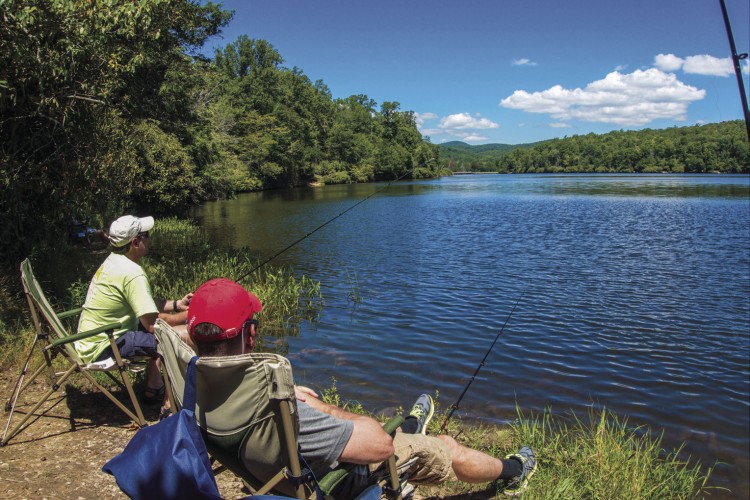
Much is overhyped lately, but there is no exaggerating the importance of abundant clean water. Quite simply, it’s critical to our health, environment and economy.
Unlike some states where water is scarce, New Jersey is defined by water. We’re bordered by the Atlantic Ocean, Hudson River, Delaware River and Delaware Bay, and have an almost uncountable number of rivers, streams, lakes, wetlands, marshes, bays and estuaries.
With nearly 9 million residents, a thriving agricultural industry and many water-dependent businesses, the Garden State’s clean water needs are enormous. But so are the threats.
According to studies by the New Jersey Department of Environmental Protection, the U.S. Geological Survey and others, New Jersey’s water quality and quantity have problems.
The United States has had clean water regulations for decades, beginning with the Federal Water Pollution Control Act of 1948. Sweeping amendments were adopted in 1972, resulting in the Clean Water Act. The law is administered by the U.S. Environmental Protection Agency, in coordination with state governments.
Water bodies that don’t meet the standards of the Clean Water Act are considered impaired. Unfortunately, in spite of overall gains in water quality over the last few decades, New Jersey is seeing a trend toward the degradation of previously non-impaired waters.
Rivers, streams and other water bodies are frequently polluted by stormwater runoff containing motor oil, road salt, lawn fertilizers, pesticides and other chemicals. Industrial spills and overflow from sewer systems also contribute.
Groundwater in our underground aquifers can be contaminated by faulty septic systems and chemicals; and saltwater intrusion occurs when aquifers near the ocean are overpumped.
Water Supply
In spite of healthy rainfall and generally abundant water, there is no guarantee that New Jersey will have enough for residents, farmers, businesses and industries — and nature.
Last spring, the state updated the New Jersey Statewide Water Supply Plan, the first update in 21 years.
Although the plan projects that New Jersey will have enough water to meet needs into the foreseeable future, this prediction depends on increasing water efficiency through conservation and reuse, addressing deteriorating infrastructure and maintenance issues, and pursuing key water supply projects.
The plan found that some areas of New Jersey already use tens of millions of gallons more water per day than the capacity of their watersheds to recharge, and that other parts of the state will likely experience deficits in the near future.
Four of the state's 20 watershed management areas are identified as stressed, and 11 more would become stressed if all authorized water withdrawal permits were fully utilized.
Water Infrastructure
Much of New Jersey’s water infrastructure is old and obsolete, and repairing it is costly.
Most concerning are the combined sewage and wastewater systems in 21 of New Jersey’s older cities. These systems often back up during heavy rains, dumping raw sewage into rivers and backyards and posing serious threats to public health.
Old lead pipes often contaminate drinking water, creating a major public health threat. Many water systems in New Jersey have exceeded federal Safe Drinking Water Act standards for lead, including those serving schools and hospitals.
This state we’re in needs to do more to protect clean water, use it efficiently, and treat and discharge it sustainably.
Over the past eight years, the outgoing administration in Trenton weakened vital water protections, including Flood Hazard Act rules, freshwater wetlands rules, Water Quality Management Planning rules, groundwater standards, water allocation rules, and septic density rules.
Fortunately, our new governor-elect has pledged stronger environmental protections.
All New Jerseyans can help by urging the new governor and the state Legislature to make clean water a priority:
• Reverse rollbacks in clean water rules and regulations by the previous administration;
• Address lead in drinking water;
• Revise, update and repropose the draft Water Supply Plan;
• Prevent the adoption of proposed freshwater wetlands rules;
• Prepare and adopt plans to remedy surface water quality issues.
For more information read the Clean Water section of Environmental Agenda ’18: New Jersey’s Conservation Roadmap, at njlcv.org/sites/default/files/news/EnvironmentalAgenda%2718.pdf. Environmental Agenda ’18 is collaboration between the New Jersey League of Conservation Voters Education Fund and 30 environmental groups, including New Jersey Conservation Foundation.
If you have thoughts about New Jersey's water that you would like to share, email Byers at info@njconservation.org. To learn more about preserving New Jersey’s land and natural resources, visit the New Jersey Conservation Foundation website at njconservation.org.